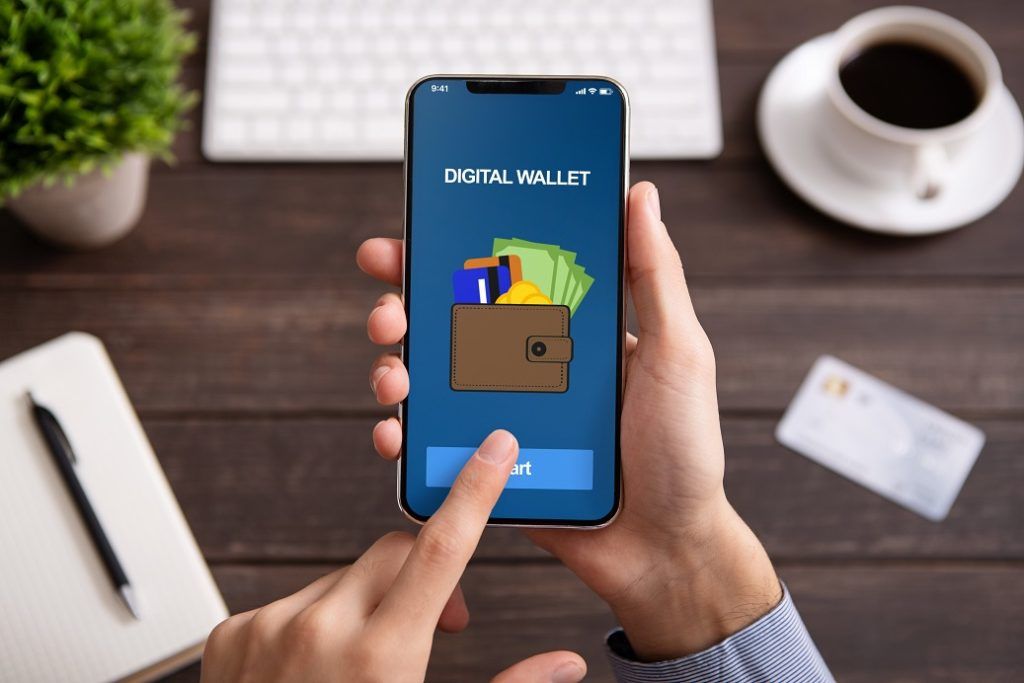
As an expert on digital payment infrastructure, I would like to share with you how digital wallets provide advanced payment control to merchants. Digital wallets are applications that store payment information, such as credit cards, debit cards, bank accounts, or cryptocurrencies, and allow users to make transactions online or in-store using their mobile devices.
Key Benefits
Digital wallets offer many benefits to merchants, such as:
- Faster and easier checkout: Digital wallets eliminate the need for customers to enter their payment details every time they make a purchase, reducing friction and increasing conversion rates. Customers can simply scan a QR code, tap their phone, or use biometric authentication to complete a transaction in seconds. For example, PayPal, one of the most popular digital wallets, allows customers to pay with just their email address and password, without having to share their card or bank details with the merchant.
- Lower transaction fees: Digital wallets can reduce the transaction fees that merchants have to pay to payment processors, banks, or card networks, by using alternative payment methods, such as peer-to-peer transfers, direct debits, or cryptocurrencies. This can save merchants money and increase their profit margins. For example, Venmo, a digital wallet that enables users to send and receive money from friends and family, charges no fees for transactions made with a linked bank account or debit card, and only a 3% fee for transactions made with a credit card.
- Enhanced security and fraud prevention: Digital wallets use encryption, tokenization, and authentication technologies to protect the payment information and identity of customers, making it harder for hackers or fraudsters to access or misuse them. Digital wallets can also enable merchants to set up rules and limits for transactions, such as requiring additional verification for large or unusual purchases, or blocking transactions from certain locations or devices. For example, Apple Pay, a digital wallet that uses biometric authentication and NFC technology, generates a unique token for each transaction that does not reveal the customer’s card number or personal information, and allows customers to disable their device remotely if it is lost or stolen.
- Improved customer loyalty and retention: Digital wallets can help merchants build stronger relationships with their customers by offering personalized offers, rewards, coupons, or discounts based on their purchase history, preferences, or behavior. Digital wallets can also integrate with loyalty programs, gift cards, or vouchers, making it easier for customers to redeem them and encouraging repeat purchases. For example, Starbucks, a coffee chain that has its own digital wallet app, allows customers to earn stars for every purchase they make with the app, which they can use to get free drinks or food items.
- Greater customer insights and analytics: Digital wallets can provide merchants with valuable data and insights into their customers’ spending patterns, preferences, feedback, or satisfaction levels. This can help merchants optimize their marketing strategies, product offerings, pricing, or customer service, and increase their competitive advantage. For example, Google Pay, a digital wallet that integrates with Google services and products, allows merchants to access data on customer behavior across different channels and platforms.
Conclusion
In conclusion, digital wallets provide advanced payment control to merchants by enabling faster and easier checkout, lower transaction fees, enhanced security and fraud prevention, improved customer loyalty and retention, and greater customer insights and analytics. Digital wallets are not only convenient for customers but also beneficial for merchants who want to grow their business and stay ahead of the market trends.






